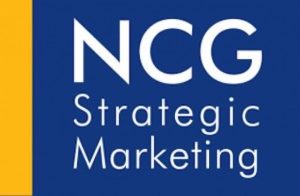
Starting with the tragic attack by a white supremacist at the Emanuel AME Church in Charleston, South Carolina on June 17, the last two weeks have been an historic and hyper-speed ride through some of our country’s most controversial issues, from race relations to gun control to same-sex marriage to Mexican immigration.
Perhaps the most striking aspect of the confluence of events and discussions surrounding these issues has been the quick and decisive responses from corporate America. In years past, any responses would have been muted and delayed. However, the nearly immediate, high-level calls to take the Confederate battle flag down from the South Carolina capitol grounds following the shootings quickly led to Amazon, eBay, Sears and Walmart pulling all Confederate merchandise from their shelves. A few days later, the Supreme Court’s decision legalizing gay marriage throughout the U.S. was quickly followed by universal acclaim from dozens of corporate brands ranging from Absolut, American Airlines and AT&T to The Weather Channel, Visa and Walgreens.
And the decisions by NBCUniversal and Univision to sever ties with Donald Trump over his derogatory comments about Mexican immigrants were strong statements that likely would not have been made just a few years ago. All together, recent events have sent the undeniable message that social change is happening very quickly these days. In fact, I would suggest that it’s happening faster now than at any time since the 1960s.
But how do these social changes affect you – the lawyer, the accountant or other professional – and what relevance could the rate of social change in this country have to your firm’s branding and marketing?
To answer those questions, I would suggest that even if external social change didn’t previously matter to how your firm operated, or how it branded and marketed itself, it matters now – and it will matter even more in the coming years. The time is rapidly coming to an end when your firm’s stand on social issues is not important to your current and prospective clients. More and more strategic brands are incorporating strong positions on various social issues – and it may be time for you and your firm to consider it, as well.
Does that seem counter-intuitive to you? Wouldn’t such a move seem to violate the primary rule of business that one should try to attract as many clients as possible? Why would a business want to do anything to repel large numbers of prospective clients?
These are very reasonable concerns, but let’s take a quick look at today’s business and cultural environment. In an increasingly crowded and competitive marketplace for nearly all goods and services, it becomes more and more difficult to differentiate your firm and your services from that of your competitors. That’s why I always suggest that businesses – especially small businesses – look for ways to specialize, to find a niche. In a busy world, the grey and the beige are more easily overlooked. Think about how we’ve transitioned from a society in which there were four or five TV stations available in each city to hundreds, and how our grocery stores that used to offer one type of milk now provide dozens of alternatives. One-size-fits-all no longer fits anybody.
By taking a political stand as part of your strategic brand, you would be helping to define who you are – and whom you serve. Yes, there would be some prospective clients that would like you less. But there would be plenty of others that would like you much more. That’s your tribe.
It’s important to recognize that the balance of power has shifted away from corporations and professional services firms and to consumers and clients. The ability to do a quick search on Google and visit 10 websites in 10 minutes means that your firm is now a participant – whether willing or unwilling – in a 24/7 beauty contest.
Your prospective clients are the judges in this contest, and on a daily basis, after visiting your website, they decide whether to pick up the phone and call you – or not. And how are winners picked in this beauty contest? Typically, your prospects want to see how your experience compares with your competitors, but they also want to see how you talk about what you do, how you work with your clients, and what your values are. Ultimately, they make a judgment as to whether they think they would like working with you. Yes, they want to figure out if they like you. You see, it always comes back to that famous trio: People want to work with those they know, like and trust.
So, what does this have to do with the amount of social change we’re now experiencing in our society? You can blame – or give credit to – two seemingly unstoppable forces: social media and the Millennials. Social media continues to impress with its ability to push individuals and organizations to take steps that they would not have taken just 10 years ago – and in other cases, to force professionals and businesses to take a fall for unwise comments or actions that would barely have been noticed a decade ago. And in every case, social media has dramatically increased the speed at which these things happen.
Related to this rise of social media is the rise of the Millennials, also known as Generation Y. They are making a huge impact, not just because of their presence on social media, but because of their overall unwillingness to accept – in their jobs, their lives, or their society – what prior generations have been willing to overlook.
Note that for those who still think of the Millennials as kids, the birth years of this generation are typically suggested as the span between the early 1980s and the late 1990s. This means that the oldest members of this generation are now about 35. Which, of course, is old enough to be running companies, not to mention selecting legal counsel, accountants and other professionals and companies with whom they want to work.
And that’s the key: The Millennials – not to mention more and more of the rest of us – are actively seeking out not just those with whom they could work (i.e., those who appear to be properly experienced and capable of the work), but they’re seeking out those with whom they want to work, and who would be a good cultural fit for themselves and their organization. All of this means that who you are as a firm – and as a person – is becoming more important every day to your potential clients.
Of course, not every law firm, accounting firm or dentist’s office will want to weigh in on all matter of social issues. And not all such firms will need to do so, nor would such activity be appropriate for some firms. Further, for some businesses, there simply may not be benefits in doing so.
However, increasingly, your prospective clients will decide to work with those professionals with whom they share deeply held values. As Anna Walker, senior director of public policy and advocacy for Levi’s, said recently, “Consumers care about value, and they also care about values.”
Does that mean that this political branding movement is part of an inexorable push toward what some would call political correctness for all companies? No, not at all. It’s a big world, and a single political alignment is actually the opposite of what I expect to be a long-term, strategic branding trend of companies appealing to their natural constituencies.
Ben & Jerry’s appealed to its customer base last week by celebrating the Supreme Court’s ruling on same-sex marriage by changing the name of one of its ice cream flavors. In a similar fashion, Chick-fil-A has created nationwide headlines (and millions of devoted customers) through its conservative beliefs, practices and pronouncements. In our politically divided country, there is plenty of room for both.
And in the increasingly competitive marketplace in which all of us work, there can be good business reasons for staking out a political stand as part of your strategic brand.


